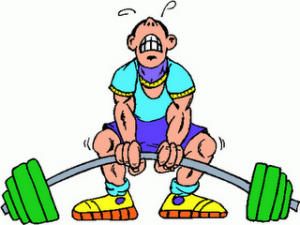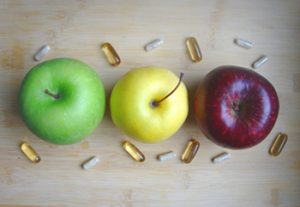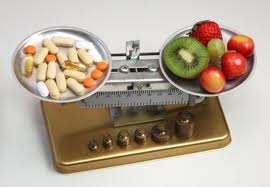Well, whether we are ready to accept it or not, it’s beach season! With bathing suit weather upon us, it’s time to pull out our razors, tan our pale skin, and burn off all those Christmas cookies that have so rudely lodged themselves into our thighs. I mean, who doesn’t want a beach bod ?! I know I sure do! Come the end of February, my core routine becomes a heck-of-a-lot more intense!
Ask anybody who rocks their bathing suit by the pool how they did it and they will all tell you the same thing: hard work and healthy eating. So we embark on our spring break diets with this crucial advice… but then we realize something… exercising and eating healthy is hard! We want short-cuts! So we go to the store and come across a supplement aisle full of pills and powders galore. We have seen the commercials and those big dudes at the gym who swear by them. So, what do we do? We buy them. And, boy, do we use them — so much so that, eventually, we forget about that crucial advice we heard weeks before.
In this article I will pass along the torch of knowledge (sounds epic right ?!) that I have gained in regards to supplement use. When using these workout tools, there are three things to keep in mind: (1) Put in the work, (2) Do your research, and (3) Food First
Put in the Work
As someone who uses a handful of workout supplements (creatine, caffeine, and whey protein powder if you really wanted to know), I can personally attest to how helpful they can be. My supplements of choice allow me to get the most out of my hard work by decreasing my recovery time between sets, increasing my mental focus, and rebuilding my burning muscles after the workout is complete. Consequently, my ability to train harder and recover faster has allowed me to pack on a little bit more muscle than if I weren’t to use these tools. That being said, the supplements that I use would be nothing more than swallowed pills and powders if I didn’t pair them with working out .
To explain, I could take as many muscle-building supplements as I wanted, but if I didn’t put in the work, I wouldn’t see the results. You wouldn’t plant a seed in the ground without watering it and expect it to grow! The same goes for workout supplements: they are your seeds, but without water (i.e. activities such as weightlifting and high-intensity cardio), your muscles are just going to keep looking like dirt. You know that big dude at the gym who swears by his supplements? Notice that he is at the gym, not sitting on the couch glued to his phone. Enough said.
Do Your Research
As an Exercise Science major, I am absolutely amazed when I see people just blindly putting things into their body without doing any research on them. I know I’m a major nerd who actually enjoys researching this kind of stuff, but there is one thing you should know: supplements can be dangerous and most of them don’t work ! Why would you spend your money — and lots of money — on something that doesn’t work and could actually harm you ?! I am telling you this with love: that’s just insane.
Researching a Supplement 101
We should always research a supplement before it is taken, much like we always research a car before it is purchased. I can promise you one thing: it doesn’t take long at all. Just get on to scholar.google.com and type in something like “effectiveness of Supplement X ” or “ Supplement X safety”. If you find that there are positive results with this supplement and that it is safe to use, then you’re good to go. If you don’t find any studies at all, DON’T TAKE IT! It’s not researched and you therefore don’t know if it works and if it’s safe. Obviously, if the findings show that it’s ineffective and unsafe, don’t even pull it off the shelf. Don’t be surprised if you don’t find anything good on your supplement. Most of these pills and powders are not researched or, like I said, not effective.

When doing your research, it is important to use Google Scholar because this website is based off of science . Not off of biased findings presented by the company who sells the supplement, not off of outrageous testimonies on a magazine cover, and not off of the words of misinformed advertisers (cough, cough Dr. Oz). That being said, because this site is scientific, some of the articles can be a little much. Follow these two hints to make sense of all that PHD craziness:
The Abstract is your friend!
99.9% of scientific articles have an Abstract. This section is presented at the very beginning of the article (most of the time you don’t even have to open the full-article!) And summarizes the study in one short paragraph. It always lists the findings in the last few sentences, saving you a lot of time and scrolling.
Look at the dosage!
Most of the time the specific amount of the supplement given (usually in grams or milligrams) is listed in the Abstract and, if not, you will find it in the Methodology / Procedures section . If the supplement was shown to work in the experiment, then the amount that was given is the effective dose. Write this number down and ensure that the brand of supplement that you are buying contains this amount per serving. If it doesn’t, then that particular brand is ineffective and pretty much useless. For example, if the effective dose of Supplement X was found to be the 5 grams, you would avoid buying Company Y’s version of Supplement X if it only had 1 milligram of Supplement X per serving.
For as bad as a reputation that WebMD gets (I call it the doomsday website), I have found it very helpful when looking up supplement safety. Follow this link if you want to research the safety of your supplement quickly and easily. Note that this site does not list effectiveness as well as Google Scholar — I would use both sites to get the best out of my research.
Food First
It is a joke in the Public Health field that Americans have the most expensive and nutritious urine in the world. Why? Because we bombard our digestive systems with all these pills and powders, but our poor bodies don’t use most of them. Why? Because they don’t want them nor need them. So, what do our bodies do? They pee those useless things out! You know what our bodies do want and need ?! Food.

Like I said earlier, most supplements don’t work and, if they do, it’s not much at all. Furthermore, our bodies weren’t made to get these things in big doses — especially not in pill form. Therefore, it is really difficult for our bodies to absorb even some of the best supplements out there. This causes these supplements them to be essentially ineffective.
If you are like 99% of society who just wants to get in decent shape and have a nice figure, you really don’t need supplements at all. All you need is food. Eat easily-digested carbs and protein before and after your workout to build muscle. Eat high-fiber carbs, wholesome proteins, and healthy fats with every meal to keep your body working like a machine. Supply your body with nutrients at 2-4 hour increments throughout the day to prevent energy crashes and keep your metabolism up to par. If you do this right, you will see results.

Now, if you are really looking to take your training to another level and really pack on some muscle, supplements can now come in to play in addition to following all the food guidelines listed above . Food is always first, supplements are always second. Don’t go loading up on creatine while eating nothing but potato chips all day. You won’t like the results, I can promise you that.
